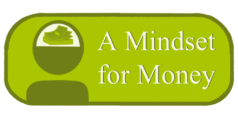
Walk! Don’t Run!
“Walk! Don’t Run!” Those were commands we heard when we were very young, at school and at the pool.
Experience had taught those making that call that you increased your chances for injury with a fall. If you ever scraped your knee on concrete, you would know how painful that is.
That same concern for your safety and welfare causes me to write this post. Since my blog is about helping you build a better mindset for money in your life, I will share with you why I believe you should not run with your money. That is, you should not run ahead of your plan for spending your money.
Let Me Explain
If you run with your money, you could fall and lose some of it. Or, when you are running through the stores grocery shopping or gift shopping or running through websites to shop online, you may lose control and spend what you thought you had but forgot to add it up as you went along.
Spending without a plan is running out of control. Values at that speed are just a blur.
Pay attention to your flow of cash. You have limits, so face them.
Your ability to control how you spend your income will be greatly enhanced if you solidify your money picture in your mind by putting the facts on paper or on your computer where you can see it.
How Does That Help?
I am glad you asked. Being able to see the facts will help you give value to what you have versus what you want to buy.
When you can see the picture of what your spending plan looks like, including your current income less your obligations, which reveals the available cash for your spending excursions. We all like to spend. The trick is to know how much we can spend.
What About That Plan?
That plan is what can slow you down enough to keep you from hurting yourself.
How? Consider this, if you spend without regard to your bank balance and what other obligations are to be met soon, you could incur some serious bank fees for overdrafts on your checking account.
Or, worse yet, you could salvage your bank account by using a credit card. They are so easy to use. They are indeed! The only problem is you have NOT PAID for what you bought, yet!
You say, “Hey, they let me have it, so they are paid. I did not steal it.” I am glad you went through the register and did not show up as a shoplifter on the security camera!
However, you just put yourself into Debt Jail!
And you will not get out until you pay the fine—interest and possible late fees if you miss the payment date.
What Do You Suggest I Do?
I suggest you move slower, take time to plan, make saving a priority in your plan, and learn to live on what is left. That is the habit of the rich. So, if you are not rich, I suggest you consider changing your habits.
Put the facts in writing. It will help you learn if you have an income problem or a spending problem. Either way, decide to fix the problem and learn a better mindset for your money.
Value Savings
Many authors suggest having three to six months of livings expenses on hand as adequate savings. They are referring to take-home pay. If you add that up, it will look like a large sum of money to most of us—a tempting sum, for sure, to get something we want.
So how do you value that much money to keep your hand out of the treasury? You must define the purpose for your savings. Write it down and stick it on the refrigerator door so you can see it every day!
Maybe you will not need it right away. However, when you can avoid using a credit card to cover a car repair, to pay a plumber, or replace your TV, then, the value is incredibly clear. You will sleep better and experience fewer panic attacks. And you will avoid “Debt Jail”.
The Long Run
The average working career is between 40 and 50 years. That is a long run.
Hopefully, you will generate a decent income through your efforts to bring value to the job market. In total, your salary will be well over a million dollars. That is a lot of money. Will you save any of that money for your retirement?
Inheritance
Your children and grandchildren will observe how you live. Will you leave a legacy they will be proud of?
If not, at least leave them a little money and they will be very thankful for your generosity.
Leave a Pleasant Surprise
My Mom was a quiet woman. She did volunteer work for many years in her retirement. Everyone loved her. She died soon after her cancer diagnosis. We were glad that she did not suffer long.
My brother and I went through files and were surprised to find paid-up life insurance policies that she never talked about. They were not sizeable amounts but helpful none the less.
What a pleasant surprise that was! Even more, we found that she had a paid-up funeral plan in place, as well!
Thanks, Mom!
So, How Do I Accumulate Retirement Funds?
Consider this: We are unclear about what the Social Security System will look like in twenty years. But, one thing is clear, it will not be as good as it is right now. We already see full benefit age levels going up and Medicare coverages going down. That translates to less coming in and more going out when you retire. Will you be prepared for that?
The realization of the growing concerns over Social Security funding and the inability of major corporations to fully fund pension plans, led the U.S. Congress to come up with a way for us to fund our own retirement, called E.R.I.S.A., Employee Retirement Income Security Act of 1974. That Act helped to generate the first 401(k) Plan in the early 1980s. Only recently has the Roth IRA been developed.
The IRS has defined the tax implications as noted in section 401(k) in the Revenue Tax Code. The 401(k) plan contributions are pre-tax dollars. The taxes are deferred until you draw on those funds, when the contribution and the earnings are both taxed.
The Roth IRA is sometimes partnered with a company’s 401(k) retirement plan. The contributions to a Roth plan are after-tax funds. Therefore, the plan provides for you to draw on those contributions and the earnings tax free. You lose the use of a small amount of funds currently but have a LOT more money to spend when you pull them out!
What Time Can Do with Money
There are ways to invest your savings and retirement funds that will enhance your asset values by the action of compounding.
Compounding is reflected through the reinvesting of stock growth, interest earned, and dividends paid. There are many forms of investing that offer compounded earnings.
Learning what those are should be a high priority in your self-education efforts. Through reading, attending classes and seminars, and other forms of study, you can learn who knows how to invest and can explain the process in an understandable way.
You may choose to use professionals to do your investing. However, study enough to know if you agree with how they are doing it.
Your Reminder – Walk
Take the time you need to understand your present circumstances.
Consider what your income is and what you need to do to be able to earn more than you need to survive and be able to build emergency savings and future investing funds.
You are in charge. Give yourself an accounting. Put your plan of action in writing. You will build confidence as you succeed in working past the bumps in the road, we call emergencies because we did not plan on them and were ill-prepared for them.
Make some good habits and read some good books to help that process.
Learn from the mistakes of others. Learn how the rich became wealthy. You are what you think. Think about what will give you a better mindset for money.
Walk with the right actions. Don’t run past the warning signs!
